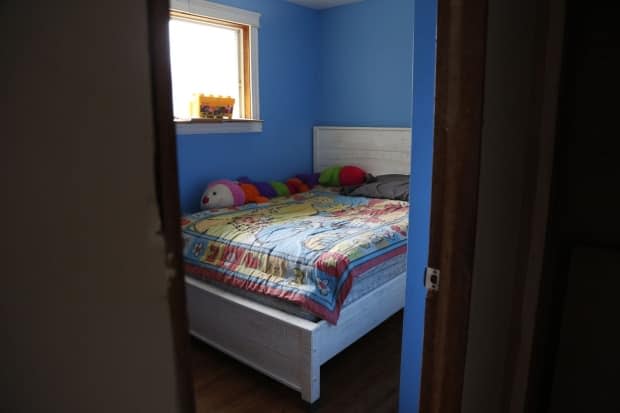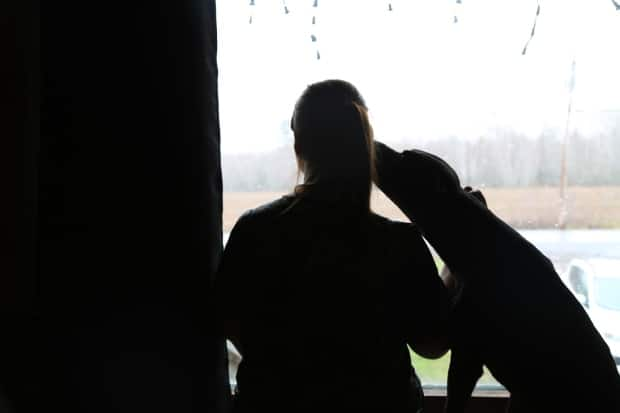Boy who spent two years in isolation over uncontrollable behaviour goes home to his mother

A boy who was 11 when child protection workers set him up in a government-owned residence where he had no access to education or friends and was often physically restrained by his caregivers has been returned to his mother.
The boy had been in the care of the minister of social development since March 27, 2019, and the minister was asking family court to make the boy a permanent ward of the state on the grounds that his security and development were in danger because he was beyond the mother's control.
After presiding over a five-day trial, Court of Queen's Bench Justice Tracey DeWare dismissed the application.
"It cannot be said [the boy's] time in the care of the minister has been a resounding success," DeWare wrote in a 33-page decision.
The court heard from numerous witnesses who described the boy's impulsive, controlling and sexualized behaviour and constant need for attention.
DeWare concluded this was not the mother's fault or a reflection of her parenting and rejected the argument the mother's custody should be severed so the boy, now 13, could get the help he needs.
A parent of a child with cancer or a severe spinal injury would not be expected to give up custody to get their child treatment, Deware said.
The judge cited two expert witnesses — a psychiatrist and neuropsychologist — who were of the view that no parent on their own would have the ability to manage a child with such overwhelming needs.
"The [mother's] inability to care for the boy stems from the complexity of his needs — not a deficit on her part," wrote DeWare.

Even the minister had not done demonstrably better, despite expending "exorbitant sums," she said.
That included paying for the boy to stay in a specialized placement for two years.
Specialized placements are living arrangements approved by the province for youth in the minister's care who have suffered such trauma or have such complicated mental health disorders, they can't be housed in a regular group home or foster care.
Usually, the Department of Social Development reserves one house for one child and contracts a third party to hire shift workers to manage daily operations.
In this case, the home was operated by Capital Family Services under the guidance of Sea Glass Consulting Group, which provided training to staff in behavioural therapy.
The boy also had access to a psychiatrist.
Despite these interventions, the boy repeatedly ran away and police were called numerous times in response to altercations at the residence.
In March the boy was arrested and sent to jail. He is now facing five charges for allegedly assaulting his caregivers.
"The situation at the residential placement was far from ideal," DeWare wrote. "However, this is not as a result of malfeasance on the part of any of the participants. [The boy's] complex needs have totally taxed the minister's resources and expertise as they did his mother."

The court had also heard that the boy had continued to cause problems within the confines of the Restigouche psychiatric hospital in Campbellton, where he damaged property, tried to escape and was found with shanks.
Court grants six-month supervisory order
"The only anchor of stability in the [boy's] life is his family," wrote DeWare, concluding that the situation called for a six-month supervisory order that would authorize the minister to exercise supervision of the child.
"A supervisory order will ensure the continued involvement of the minister and the mother as they jointly work to assist [the boy] through these very difficult adolescent years."
The judge anticipated that would mean both parties would co-operate to put in place the treatment recommendations made by the boy's physicians.
The boy is at a perilous point in his life, wrote DeWare.
"If he doesn't get the dedicated help he requires, he will likely be lost to the criminal system, first as a juvenile, then as an adult.
And that would be tragic, she said, because the boy is not a true criminal but may be headed down that path because of his significant mental illness.
"While it is likely of little comfort to the person being physically assaulted or sexually harassed by [the boy] who is 5'11", 265 pounds and speaks in profanities, he is nonetheless, still a young boy," she said.

Already in the criminal system
The judge was aware that the boy is currently caught up in the youth criminal justice system.
It was a youth court judge who sent him to Restigouche in May for a 30-day psychiatric evaluation and then ordered another assessment to determine whether his mental health disorders made it impossible for him to understand the consequences of his actions.
So while the Court of Queen's Bench was trying to contemplate the best interests of the child under the Family Services Act, youth court Judge Julian Dickson was trying to protect the boy's best interests under the Youth Criminal Justice Act.
However, the systems appeared to work at cross purposes in two decisions spaced four days apart.
In DeWare's decision released on June 17, she expressed the court's "fervent hope" a treatment bed would be found for the boy in Restigouche so he could benefit from the expertise there.
She said everyone "involved in this matter" wanted him to stay in the hospital for in-patient treatment: the mother, the lead social workers, the physicians, the lawyers, including the boy's lawyer.
Instead, he was set free.
At the boy's bail hearing on June 21, prosecutor Darlene Blunston told judge Julian Dickson that a bed had been prepared for the boy at Restigouche, but since the chief justice had rendered a decision that denied the minister guardianship, that plan had changed.
"The department no longer has custody of [the youth]," Blunston said.
The higher court's supervisory order meant the boy would be returned to his mother, she said. She reminded the court that the mother had told the judge at a previous youth court hearing that she didn't want her son to stay at Restigouche.
"Realistically, I don't think that [the youth] ought to be held any further," concluded Blunston at the bail hearing. The Crown then drafted conditions for his release, including a 9 p.m. curfew and promise to keep the peace.
By late last Monday afternoon, the boy was being driven from the Miramichi youth corrections centre to the Fredericton courthouse, where he was picked up by his mother and sister.
The boy will have to return to youth court next month.
Mother starts over with no support
"He had a great night," the mother said in a text message on Tuesday morning, after the boy had spent his first night at home in more than two years. "He watched movies, played Xbox and visited with family."
She said she had no support in place from Social Development even though she had asked for a contingency plan in case the minister lost in court.
It's not yet clear how the minister will honour the supervisory order. The department never discusses individual cases.
The mother cried with relief when she read the decision about guardianship and was still emotional, when she drove to the courthouse Monday afternoon to pick up her son after the bail hearing.
"You don't know how hard it was for two years, getting shot down and pushed to the back and made to feel invaluable in this whole thing and then to be proven that I am fit and I am a good mom and I am capable," she said.
"I just need the help that I asked for," she said, referring to treatment for her son.
"I'm not a child protection case, just like I argued for two years. I don't neglect my kids or abuse my kids. I don't have a drug addiction. I'm not incarcerated. There's no reason why I should have been treated like a child protection case."
Just before she got her son Monday, the mother drove to the specialized placement to gather his belongings.
She's profoundly relieved he won't be going back to that place.
She's convinced her son was traumatized by his treatment there, including all the times he was physically held down by his caregivers. Sometimes, that meant one caregiver holding onto his legs, another restraining his arms and a third, to keep him from banging his head. Some holds lasted up to 45 minutes, one witness testified.
Another said "a lot of workers" had been diagnosed with PTSD from working with the boy and that working in the residence had affected their home life, contributing to a high staff turnover.
The court heard as many as 70 people had worked on site over two years.
The mother spoke out against other aspects of the programming.

The minister said the mother's interventions were getting in the way of the boy's treatment.
This was set out in the grounds for severing her custody — that the mother's "ongoing complaints" regarding her son's residential placement and the service providers were acting as barriers toward effecting positive change.
Chief Justice Deware addressed this in her decision.
Although sometimes the mother's demands were unreasonable, DeWare wrote, sometimes the complaints were warranted.
And while it might make the minister's job easier to have full control, it was no reason to issue guardianship.
"We do not take children away from their parents because the parent is hard to work with," DeWare wrote.
She also pointed out that the mother's advocacy had resulted in positive developments such as getting the boy some tutoring.
'It's hard to explain how complex this is'
One of the key witnesses at trial was Dr. Yves Turgeon, who was recognized by the court as an expert in clinical psychology. He was asked to assess the boy's emotional and intellectual development and he said he had detected an emerging disorder, which he described as very concerning.
He said it meant the boy was capable of "less and less" empathy for the people who surround him.
"It's hard to explain to the court how complex this is and how much help this child will need," he said.
Restigouche works with very complex cases of children who are out of control, said Turgeon.
"Unfortunately, we see many. It's very sad but it's a reality."
Under cross-examination he was asked if the boy's treatment, including the use of holds, had caused the boy harm.
He said it's the duty of responsible adults to prevent a child from harming himself or others even if that sometimes requires physical restrictions as the last line of defence.
"You had better know what you're doing because it can go wrong very easily," he testified.
When Turgeon was asked if the boy would likely offend again, Turgeon said he was at high risk to reoffend. He said children with impulsivity tend to harm the people with whom they feel an emotional connection, including parents and caregivers.
He said the boy needs help from an integrated team, including professionals from the departments of health, justice and social development.
"This is going to be difficult," he testified. "There's not going to be any miracles. There never are in these complex cases. It's always a lot of work for a very small success."
But he added, that's no reason not to try.
N.B. parents get two years to shape up
The judge's decision also shed some light on why it's the minister's practice to seek permanent guardianship of a child after that child has been in the minister's care for 24 months.
Typically, she said, a guardianship application is filed when a parent cannot care for a child because of factors such as addictions, domestic violence, criminality, housing instability or issues around physical or mental health, and the parent has failed to resolve those issues within two years.
"The Act and the case law interpreting the Act have made it clear that parents have only 24 months in which to demonstrate they can care for their children," said the judge. "Children will not be required to wait indefinitely for their parents to address their issues."
But this was not that kind of case, she clarified.
She said in circumstances where a child's needs are so complex they would be beyond the coping ability of any parent, a supervisory order should be issued, not a guardianship order.
She further enumerated her reasons why she reached that decision:
The minister has had negligible if any greater success in the care of the child than did the parent.
It's clear that the overwhelming nature of the child's needs will continue for the foreseeable future through no fault of the parent.
There is no possibility of the child being placed with a family in the event a guardianship order is issued
The parent remains diligently involved with the child.
'This was the best decision'
New Brunswick's child and youth advocate read the decision and commended the judge for it.
"This is the best decision she could have come up with," said Norm Bossé.
The supervisory order can be extended for another six months, he said. "Which is a really good, cautious approach."
"The other thing it does is put the mother and Social Development and Health on notice that you're going to have to answer some questions in six months, so let's try to get it right. Everybody is being watched here."
The judge had raised the possibility that if the boy could not get the treatment he requires at Restigouche, he may need to go out of province.

But Bossé wasn't sure where that might be. His first thought was Maine-based Spurwink Services, where New Brunswick used to send children at a huge financial cost.
Bossé said that in his opinion, the judgment did not condemn the use of specialized placements, although he thought this case should compel the minister to re-examine them.
And that would include taking stock of a letter of resignation by two external behaviour therapy consultants who refused to continue treating the child, citing among other things, the use of restraints.
"They retreated very quickly when they found out there was a course of treatment being used that they didn't agree with. They said, 'Look, we don't believe in that. That's not where we are in our treatment so we're out.' So they left," said Bossé.
"That's why I'm saying you should have a debrief because there are some issues in there that should be discussed by the department."

